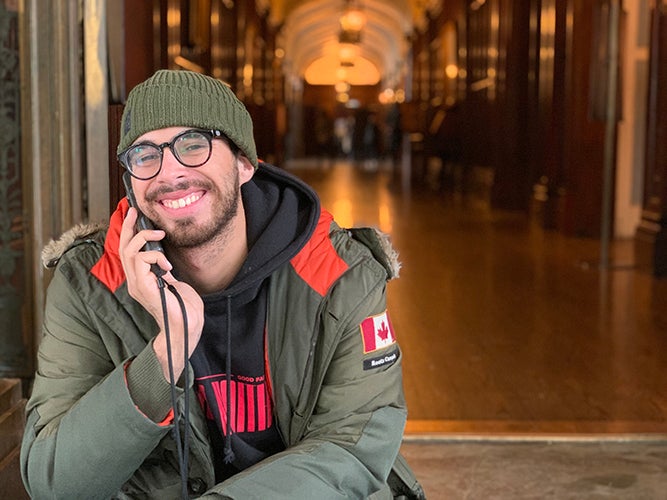With some basic English, Andres Garcia Rodriguez left his family and home in Mexico to finish high school. He arrived first in Vancouver, attended a camp to improve his English. After he learned that there was a spot at a high school in Toronto, Rodriguez moved across the country.

“By default, I’m good at science, so I’m going to do science,” recalled Garcia Rodriguez. “That wasn’t such a good idea, because I was also taking computer science and I really liked it, but I wasn’t very exposed to it.”
After co-op positions as an Instructional Support Assistant (ISA) for CS100 and a term living in Velocity Residence, Garcia Rodriguez started to take the necessary steps to transfer into computer science. He wanted to be able to create the code to build his ideas for a business. It was the exposure to people in the field that opened up the possibilities for him.
Garcia Rodriguez’s university experience went beyond academics. He had always been involved outside the classroom in high school, and university was no different. After he lost his father, he started shaping what he wanted to do and began to look at how he could help people.
“I asked myself, how can I change to be more inclusive?” said Garcia Rodriguez. “I wanted to help people around me to do better things.”
His friend Meaghen Vydelingum talked to Professor Jo Atlee about how hackathons were growing in popularity and that she had some friends who wanted to start one around equity. She gathered Garcia Rodriguez, Celine Davis, Meagan Furgal and Falah Shazib, and they co-founded Equithon in 2017.
“We started thinking about how to make computer science more accessible to people from racial minorities and women,” said Garcia Rodriguez. “Coming from a developing country, I didn’t have exposure to people or a safe space where I could talk about these things – that’s what drove me to start Equithon.”
Garcia Rodriguez didn’t stop there. Beyond helping with MathSoc, he also took on the role as Director of the Math Endowment Fund. It gave him a platform to learn, to have a bigger impact on the student community, and to connect with Faculty administration. Those connections helped Garcia Rodriguez have his voice heard about the need for a position in the Faculty to help with student wellness. That position now exists in the form of the Community Engagement Coordinator and could help students for years to come.